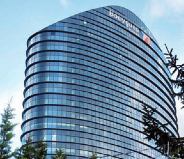
After more than 40 years of operation, DTVE is closing its doors and our website will no longer be updated daily. Thank you for all of your support.
French ISPs stand alone following break-up of Orange-Bouygues talks
France’s leading telcos have set out their stall for further investment in broadband on a standalone basis following the failure of talks between Orange and Bouygues that would have seen the number of leading players in the market reduced from four to three.
Orange’s proposed acquisition of Bouygues Telecom will not take place, following Bouygues’ decision to pull out.
In a statement issued late on Friday, the construction-to-telecoms conglomerate said that it had been unable to find agreement with Orange on the key elements in the deal, including the fate of its employees, the level of participation of Bouygues in Orange post the acquisition, the risks of execution and the value placed on Bouygues Telecom. It said that its board had unanimously decided to end the talks.
Bouygues said its telecom unit would pursue a standalone strategy in a market where the prospect of consolidation now appears to be excluded permanently.
The company said it was convinced that the telecom market had considerable growth potential and that its telecom subsidiary was “particularly well-placed” to benefit. It set an objective of an EBITDA margin of 25% by 2017 for Bouygues Telecom, rising to 35% in the longer term.
Orange issued a statement saying that its board had decided to pull of out of talks after failing to agree terms with Bouygues. The telco said that would pursue its strategic plan, “focused on investment in very high-speed broadband networks and providing an unmatched customer experience” and confirmed its existing financial objectives.
The deal appears to have foundered principally because of the unwillingness of the French state, Orange’s largest shareholder, to accept Bouygues proprietor Martin Bouygues’ demand for a stake in the operator that would have seen its own shareholding fall below the 20% threshold.
According to French reports, the state also wanted to put in place measures to restrict the future influence of Martin Bouygues on the combined entity which the latter found unacceptable.
Another factor reportedly weighing against the deal was additional demands placed by Iliad Telecom/Free proprietor Xavier Neil, who, along with France’s fourth telecom player SFR, stood to benefit from receiving some of Bouygues and Orange’s assets if the acquisition had gone through.
Iliad issued a statement following the break-up of talks that it would accelerate its own deployment of high-speed fixed and mobile networks on a standalone basis. The company has set an objective of taking a 25% share of both fixed and mobile markets in the longer term.



